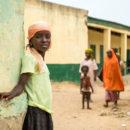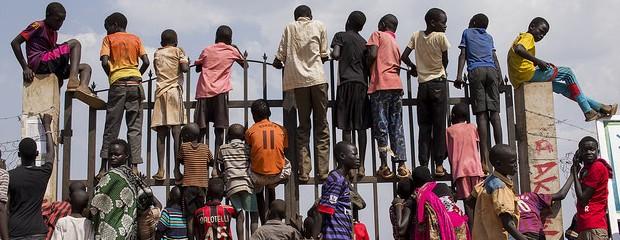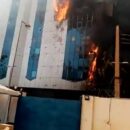Sudanese scenarios for 2011 and After: Introduction
Sudan faces two momentous events in the next fifteen months. The first is the general election, intended as the first multi-party nationwide elections in the nation’s history (earlier multiparty elections in the 1960s and 1980s did not include war-affected areas in the south, an exclusion that doomed the resulting governments). The second is the referendum on self-determination in southern Sudan, which if indications of southern opinion are reliable, will lead to a decisive vote for secession. With all the attention on “˜CPA implementation'””which consists of safely getting to the point of the referendum””there has been far too little attention to what happens afterwards.
Two reports on scenario exercises, by the Clingendael Institute in the Hague and by the U.S. Institute of Peace have filled that gap in the public discourse. Over the next weeks, we will be debating these on this blog.
The authors of the two reports will outline the findings of their exercises and we have invited some of those who contributed, and who have thought about these issues, also to contribute.
Let me begin with a word about scenario methodologies. As those who organize scenario exercises will emphasize, a scenario is not a prediction. It is an exploration of the possible and plausible on the basis of the assumptions and information held by those who participate in the exercise. However, despite the caution of scenario specialists, scenario reports are invariably read as anticipations of possible futures. A good scenario obliges decision makers and analysts to reconsider their assumptions and strategies.
A scenario exercise is only as good as the information and assumptions that are put in, and the questions that are asked. If key questions remain unasked, or important dimensions of the problem remain unanalyzed, then the exercise cannot take account of them. Because scenario exercises feed back into decision-makers’ strategies, they can potentially run the risk of becoming self-reinforcing about the nature of the problem.
Another limitation of scenario exercises is that they are based on human processing of information about the current political landscape. People who are familiar with the subject””in this case Sudan””may have sound intuitions and reasonable expectations about the current configuration of politics and reasonable trajectories. But almost everyone, including experienced political operators, are very poor at anticipating outcomes when a major factor changes. The scenarios for Sudan changed markedly when Dr. John Garang died in July 2005. Very quickly thereafter, Sudanese and Sudan analysts mentally adjusted to the new realities. But if they had been asked beforehand about scenarios in the absence of Dr. John, the results would have been little more than guesswork. The ICC arrest warrant against President Bashir also changed the political landscape, ruling out the scenario of a head of state other than Omer al Bashir after the elections. Similarly, there are likely to be dramatic events around the time of the referendum, whose impacts are very hard to anticipate. No-one, for example, is examining what might happen if there is a powerful movement for self-determination in Darfur, or if a renewed north-south war brings in other governments in the region as belligerents.
What the two scenarios succeed admirably in doing is laying out the key drivers of the future of Sudan, as they exist today, and the possible outcomes. The bleaker outcomes are sadly more probable than the more optimistic ones. The scenarios help us focus attention on the key strategic choices to be made, and the most important dangers to avoid. They have come not a moment too soon.







Dear Alex,
I must say that I would really welcome a discussion on post-2011 scenarios for Sudan. A worrying picture is painted in the reports by Jaïr van der Lijn and USIP, and their analyses offer plenty food for thought. I’ll limit myself here to one remark and one question.
First, I would like to briefly respond to Van der Lijn’s finding (‘Sudan 2012’ – October 19th) that “the organization of free and fair elections is essential, not only to guarantee peace, but as the only peaceful way to bring about unityâ€. My personal view is that the elections planned for April 2010 should no longer be perceived as an opportunity to transform the Sudanese state inside out and consequently to make unity attractive. Even with all the appropriate caveats in place, Sudan’s political context presents an extremely unfavourable context for an open and honest competition for power. Realistically speaking, a relatively peaceful ‘ticking of the box’, with little to no consequences for the status quo, appears to be the best possible result that could be achieved, as I recently argued in a Clingendael Conflict Research Unit (CRU) report: http://www.clingendael.nl/publications/2009/20090900_paper_cru_hemmer_elections_sudan.pdf
Second, both reports emphasize the importance of robust international engagement in the run-up to 2011. On the other hand, history teaches that the influence of outsiders over Sudan’s conflict dynamics tends to be quite limited. I would be very interested to hear what you and other contributors to and readers of this blog think about what members of the international community can (and cannot) do to help the country move away from the scenario many fear most: a contested separation. Should the new US Sudan strategy be seen as a step in the good direction in this regard?
Best regards,
Jort
Dear Jort,
The experience with post-conflict elections is discouraging: in too many cases, competitive elections lead to populist mobilization and the entrenchment of ethnic differences. However, two things in the Sudanese case mitigate against this. One is that the strongest parties are not built on ethnic constituencies, although there is clearly a north-south difference in the NCP and SPLM support base. The second is that the prize–executive power–will be shared in the collective presidency and the commitment of the major parties to continuing in the Government of National Unity, in some form. This means, of course, that the elections cannot be seen as a test of the relative popular support for different parties, but rather as a managed plebiscite on the status quo, especially the presidency of Omar al Bashir.
With regard to your final point, it is interesting to read carefully point number 2 in the U.S. Strategic Goals: “Implementation of the North-South Comprehensive Peace Agreement (CPA), resulting in a peaceful post-2011 Sudan whether as a single, stable and unified Sudan or a Sudan on an orderly path toward two separate and viable states at peace with each other.” Note the words “on an orderly path toward…”
No many studies about Sudan scenarios after election, so how the Sudanese political leader to be involved and to be aware about? and for the civilians so to avoid many complex may happen according to this analysis.